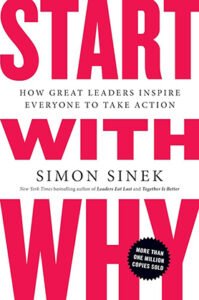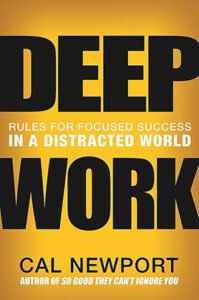
5 Ways To Build Your Lifestyle's Foundation
1. Develop a Growth Mindset
Cultivate a growth mindset by believing in your ability to learn and grow through effort and perseverance. Embrace challenges, view feedback as constructive, and celebrate progress to foster resilience and a love for learning.
A growth mindset is a powerful tool that empowers individuals to embrace challenges, view setbacks as opportunities for growth, and continually strive for improvement. Cultivating a growth mindset begins with believing in one's ability to learn and grow through effort and perseverance. Instead of viewing abilities as fixed traits, individuals with a growth mindset recognize that their talents and intelligence can be developed over time with dedication and hard work.
Embracing challenges is a fundamental aspect of fostering a growth mindset. Rather than shying away from difficult tasks, individuals with a growth mindset approach them with enthusiasm and determination. They understand that challenges provide valuable opportunities to stretch their abilities, learn new skills, and overcome obstacles.
Furthermore, those with a growth mindset view feedback as constructive rather than criticism. They welcome feedback as an opportunity to learn and improve, recognizing that constructive criticism can help them identify areas for growth and development. Rather than feeling discouraged by feedback, they use it as a catalyst for personal and professional growth.
Celebrating progress is another essential component of cultivating a growth mindset. Whether it's achieving a small milestone or making significant strides towards a long-term goal, individuals with a growth mindset take time to acknowledge and celebrate their accomplishments. By recognizing their progress, they reinforce their belief in their ability to learn and grow, fueling their motivation to continue pushing forward.
In essence, developing a growth mindset requires a shift in perspective-from seeing challenges as obstacles to opportunities, from viewing feedback as criticism to constructive guidance, and from focusing on limitations to celebrating progress. By adopting this mindset, individuals can foster resilience, perseverance, and a lifelong love for learning, ultimately unlocking their full potential and achieving success in all areas of life.
2. Expand Your Perspectives
Seek out diverse sources of information, opinions, and experiences to broaden your perspectives and foster critical thinking skills. Engage with different viewpoints through books, podcasts, documentaries, and conversations with others.
Broadening one's perspectives is essential for personal growth and development. By seeking out diverse sources of information, opinions, and experiences, individuals can cultivate a deeper understanding of the world around them and enhance their critical thinking skills. Embracing a variety of viewpoints enables individuals to challenge their assumptions, expand their knowledge, and develop empathy and understanding for others.
One way to expand your perspectives is to engage with a wide range of media sources. Instead of limiting yourself to a single news outlet or social media platform, seek out reputable sources from different political perspectives, cultural backgrounds, and geographic regions. Exposing yourself to diverse viewpoints can help you gain a more nuanced understanding of complex issues and avoid falling into echo chambers.
In addition to traditional media, exploring books, podcasts, and documentaries on various subjects can expose you to new ideas and perspectives. Look for content that covers topics outside of your comfort zone or areas of expertise. Whether it's a historical documentary, a science podcast, or a novel from a different cultural perspective, each new source of information offers an opportunity to broaden your horizons and deepen your understanding of the world.
Conversations with others are another valuable way to expand your perspectives. Engage in dialogue with people who hold different beliefs, backgrounds, and life experiences. Listen actively, ask questions, and approach discussions with an open mind and genuine curiosity. By exchanging ideas and sharing perspectives, you can gain insights that challenge your assumptions and deepen your appreciation for diversity.
In summary, expanding your perspectives involves actively seeking out diverse sources of information, opinions, and experiences. By engaging with different viewpoints through various media, literature, and conversations, you can foster critical thinking skills, enhance your understanding of the world, and cultivate empathy and open-mindedness.
3. Establish Boundaries
Set clear boundaries to protect your time, energy, and emotional well-being. Learn to say no to commitments that do not align with your priorities and values, and communicate your boundaries assertively.
Setting clear boundaries is essential for maintaining balance and preserving your well-being in both personal and professional relationships. Boundaries serve as guidelines that define acceptable behaviors, limits, and expectations, allowing you to protect your time, energy, and emotional health.
Learning to say no is a crucial aspect of establishing boundaries effectively. It's important to recognize that you have the right to prioritize your own needs and goals. Saying no to commitments that do not align with your priorities and values enables you to avoid overextending yourself and maintain focus on what truly matters to you.
Communicating your boundaries assertively is equally important. Clearly express your limits and expectations to others in a respectful yet firm manner. Be honest about your needs and limitations, and don't hesitate to enforce consequences if your boundaries are violated. Effective communication helps prevent misunderstandings and fosters mutual respect in relationships.
Boundaries can encompass various aspects of life, including time, physical space, emotional intimacy, and values. For example, you may establish boundaries around how much time you dedicate to work, when and where you need personal space, or what behaviors are acceptable in your relationships. By setting and enforcing these boundaries, you create a sense of safety, autonomy, and empowerment in your interactions with others.
In summary, establishing boundaries is essential for safeguarding your well-being and maintaining healthy relationships. By setting clear boundaries, learning to say no, and communicating assertively, you can protect your time, energy, and emotional health, allowing you to lead a more balanced and fulfilling life.
4. Embrace Flexibility and Adaptability
Remain open to change and willing to adapt your plans and goals as needed. Life is full of unexpected twists and turns, and being flexible allows you to navigate challenges with resilience and creativity.
In the journey of life, embracing flexibility and adaptability is crucial for navigating the unpredictable twists and turns that inevitably arise. Remaining open to change and willing to adapt your plans and goals as needed is key to building resilience, fostering creativity, and thriving in the face of challenges.
Life is inherently unpredictable, and unexpected circumstances can derail even the most carefully laid plans. However, by cultivating a mindset of flexibility, you can approach these challenges with resilience and creativity. Instead of rigidly clinging to a predefined course of action, allow yourself the freedom to adjust your plans in response to changing circumstances.
Being flexible means embracing uncertainty and reframing setbacks as opportunities for growth and innovation. Rather than viewing change as a threat, see it as a chance to learn, evolve, and explore new possibilities. This mindset shift empowers you to adapt to changing situations with grace and agility, making it easier to overcome obstacles and pursue your goals.
Adaptability is equally important in both personal and professional realms. Whether you're facing changes in your career, relationships, health, or other areas of life, being adaptable allows you to pivot and thrive in dynamic environments. It involves being proactive, resourceful, and resilient in the face of uncertainty, and embracing new opportunities that arise along the way.
Ultimately, embracing flexibility and adaptability is about relinquishing control and trusting in your ability to navigate life's journey with resilience and creativity. By remaining open to change, willing to adapt, and embracing uncertainty, you can cultivate a mindset that empowers you to thrive in the face of life's unexpected challenges.
5. Practice Self-Reflection
Regularly reflect on your thoughts, feelings, and experiences to gain deeper insights into yourself and your life direction. Self-awareness is key to making intentional choices that align with your values and goals.
Regular self-reflection is a powerful tool for personal growth and development. By taking the time to pause, introspect, and examine your thoughts, feelings, and experiences, you can gain deeper insights into yourself and your life direction.
Self-awareness lies at the heart of self-reflection. It involves being conscious of your thoughts, emotions, strengths, weaknesses, and motivations. Through self-reflection, you can cultivate a greater understanding of who you are, what drives you, and where you want to go in life.
Self-reflection allows you to assess your progress towards your goals, identify areas for improvement, and make necessary adjustments to align your actions with your values and aspirations. By gaining clarity on your priorities and values, you can make more intentional choices that lead to a more fulfilling and purpose-driven life.
There are many ways to practice self-reflection, from journaling and meditation to engaging in deep conversations with trusted friends or mentors. The key is to create regular opportunities for introspection and self-examination, allowing yourself the space to explore your thoughts and emotions without judgment.
Self-reflection is not always easy, and it may require confronting uncomfortable truths or facing difficult emotions. However, by embracing this process with openness and curiosity, you can cultivate greater self-awareness and resilience.
In summary, practicing self-reflection is essential for gaining deeper insights into yourself and your life direction. By regularly examining your thoughts, feelings, and experiences, you can make more intentional choices that align with your values and goals, ultimately leading to a more fulfilling and purposeful life journey.
Recommended Reading:
Below are three books on the topic of this post, which I highly recommend for your reading. As an Amazon Associate I will earn from qualifying purchases you made from this Post.


